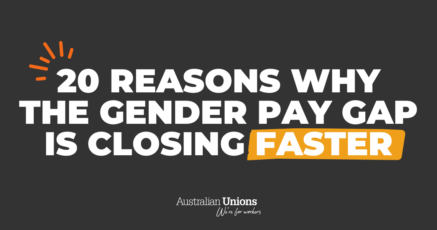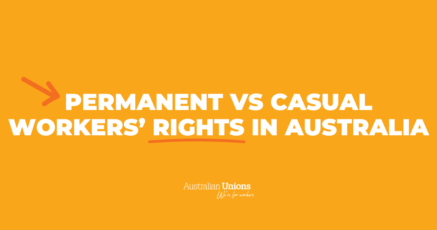The interest rate rise of 0.5 percentage points, which brings the cash rate to 1.85 per cent, announced on Tuesday by the Reserve Bank of Australia will worsen the cost-of-living crisis for workers.
Due to this decision, workers with a home loan have now been saddled with an average extra $500 a month in mortgage repayments in the last 90 days.
Australian Council of Trade Unions secretary Sally McManus wasn’t going to let the flawed logic of the interest rate hike simply slip past.
“Economic recovery relies on workers having enough money to spend, and continuously raising interest rates while allowing record profiteering business to go responsibility free will be detrimental for all Australians,” McManus said.
Workers are bearing the brunt of the cost-of-living crisis, and it is workers are burdened even more thanks to RBA’s approach towards fixing inflation through raising interest rates.
The interest rate hike has missed the real problem behind inflation: CEOs passed on costs while they raked in record profits, combined with international supply chain problems.
CEO prioritising their own pay packets, previous Coalition Governments attacks on workers’ rights, and a dated bargaining system have led to workers’ wages going backward for almost a decade. It’s no wonder workers now have the lowest share of GDP in recorded Australian history.
Our cost-of-living crisis is far from inevitable, and we can turn the tide around in favour of workers whose wages are failing to keep up with everyday costs.
Sally McManus identified the need to strengthen Australia’s bargaining system as an important step forward to address the cost-of-living crisis and low wage crisis for workers.
Reform of our bargaining laws to deliver wage growth is urgent. This is the lever the Government has at their disposal to rescue a generation of Australians from lower living standards.
Sally McManus
ACTU secretary

With inflation expected to reach 7.75 per cent by the end of the year, reform to our bargaining laws to deliver pay rises is urgent.
Already we have seen that workers who have enterprise agreements at their workplaces – rather than Awards or individual contracts – are far better off. It’s one of the big reasons why union members earn 32 per cent more than non-union members.
Workers in unions continue to negotiate higher pay in ways that ensure all workers get a decent wage for their work.






SHARE:
Interest rate increases worsens cost-of-living crisis – but workers can turn the tide